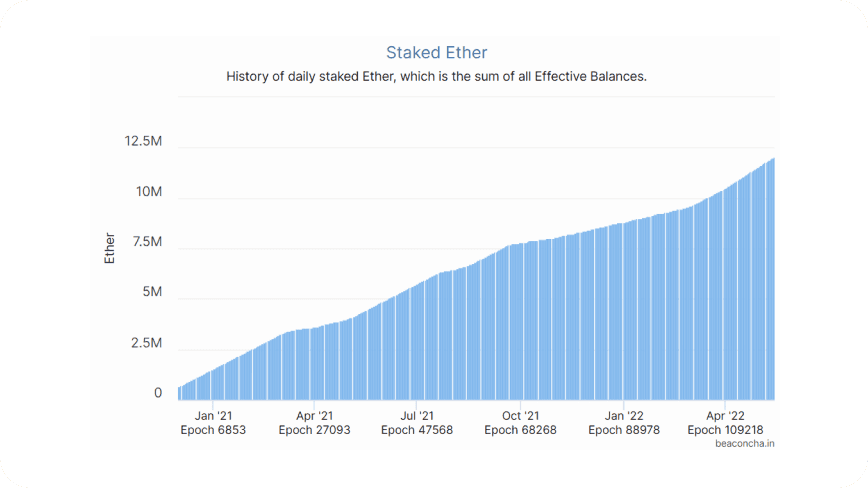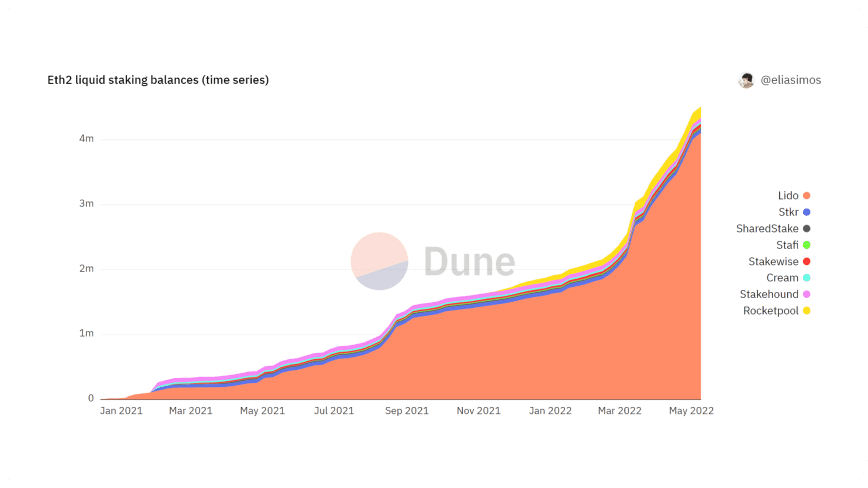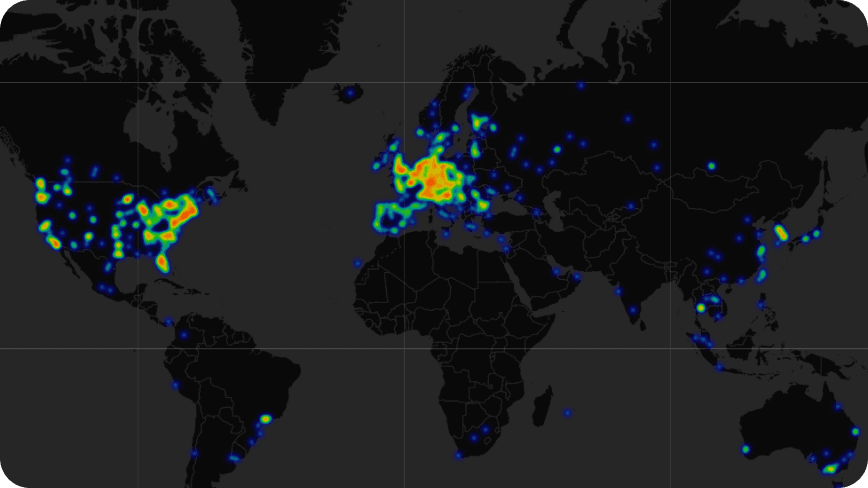Motivation
Decentralizing staking networks with bare metal infrastructure
H2O Nodes is unique in its origin, compelled by the emergence of liquid staking pools to start a staking business. We are motivated by the challenge of diversifying the node operator set of liquid staking pools by running bare metal infrastructure in underrepresented data centers. Becoming a node operator for liquid staking pools enables us to focus on improving the health of blockchain networks while staying a lean, mission-oriented company. Our intention to primarily support liquid pools is reflected in our name, H2O Nodes.
Opportunities
Growth Of ETH Staking
We recognized in 2022 that with only 10% of ETH staked, there was still a long way to go. With Ethereum having transitioned entirely to Proof of Stake, we correctly predicted that after withdrawals were implemented and market sentiment improved, the amount of ETH staked would begin to increase aggressively, creating both a challenge and opportunity for ETH staking providers.
Source
Growth Of Liquid Staking
The limitations of Ethereum’s native staking mechanics created significant barriers to entry. (32ETH-only nodes, no non-custodial delegation, and locked tokens until withdrawals are implemented) However, the emergence of liquid staking pools removed these barriers to entry, encouraging much more ETH to be committed to staking. The Lido pool in particular has grown to about one-third of the supply of staked Ethereum.
While the focus remains on Ethereum, liquid staking pools are beginning to become commonplace on other chains, a trend we believe will continue.
Source
Challenges
Geographic Diversity
Its critical to the health of the network that staking pools maintain a diverse node operator set. In particular, geographic and data center diversity should limit over-exposure to any particular regions or regulatory regimes. Half of all Ethereum and Solana validators are currently located in the United States and Germany, leaving much room for improvement.
Source
Unhosted Nodes
With the rise of hosting services like Amazon Web Services, it’s very easy to spin up staking services. However, staking pools must be careful not to add too many node operators who rely on the same cloud service providers, as this does little to increase decentralization. 50% of all Ethereum nodes are currently running on hosting providers.
While the focus remains on Ethereum, liquid staking pools are beginning to become commonplace on other chains, a trend we believe will continue.
Source
Client Diversity
Finally, on ETH there should exist diversity in the client software being run by the nodes within a staking pool. A bug or vulnerability in a single client may bring offline the nodes running that software, leading to a mass slashing event. New node operators should ensure to use client software that is being run by the minority of nodes.
Source
What we offer
Empowering Decentralization: Leveraging Bare Metal Infrastructure for Staking Networks
As a team with experience running on-prem infrastructure, we believe that we can leverage our existing relationships with data center providers and devops engineers in multiple countries to help decentralize staking networks.






